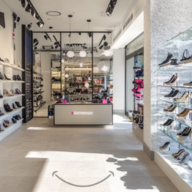Empowered Employees, Enchanted Customers: The Symbiotic Success in Retail

Retail
68 week ago — 8 min read
On a sunny afternoon of Wednesday, usually the non-busy hours of an apparel store, a customer barges in with an immediate requirement of a premium brand shirt of a size and shade that is seldom seen or heard – how would your customer associate at the store deal with such a scenario? Will they take earnest interest to provide a solution or politely inform the customer that it is not available in their stock at the moment? Research studies on Retail business for a considerable part of time, have suggested that customers’ understandings of business interactions are influenced significantly by the behaviour of satisfied employees. Contented or satisfied employees in the workplace tend to display positive emotions and are more likely to share their positive feelings and credible service to the customers. By having a close contact with the customer, employees strongly influence the customer’s experience (Van Dolen etal., 2004, p. 437).
Organizations revolve around catering to customer needs and delivering the finest products and/or services. While there are numerous other crucial elements involved in running an organization, employee satisfaction emerges as the second most important aspect when it comes to customer satisfaction. Hence, utmost focus on employee engagement and satisfaction is the need of the hour. Retailers around the world are competing to be the employer of choice, and overcome the ongoing challenge of dissatisfied workforce. Thus, an effective employee experience strategy is essential for engaging employees at every stage of their journey within the organization.
In the world of retail, the relationship between employee satisfaction and customer experience is undeniable. It’s a symbiotic bond that can yield tremendous benefits. A healthy, happy and harmonious workforce ensures steady business growth.
As an initial start to designing a strategy framework on employee experience, the gap between the customer experience and engagement needs to be reassessed. As per the research studies conducted within the Retail Industry, there exists a gap of 21 % when it comes to the customer experience and expectation gap.

A strategic and pragmatic approach would help enable bridge the gap. By effectively capturing and comprehending employee signals, and providing the appropriate individuals with access to these valuable insights, the retailer has to empower their organisation to maintain a continuous and comprehensive view on employee’s experience.
Let us dive a bit more, in detail – to the factors that contribute to help bridge this gap better:
Communication and Employee Satisfaction
It has been observed that employees’ perception of top management and their communication styles and associated management activities directly influenced job satisfaction. Furthermore, scholars like Carriere & Bourque (2009) have found that employees who reported a high level of communication proficiency tend to exhibit higher overall satisfaction, which in turn positively impacts their performance. Thus, a positive hypothesis is established.
Rewards and employee satisfaction
To ensure that employees are content and provide excellent service to customers, it is important to offer rewards and benefits (such as competitive compensation, opportunities for advancement, recognition, personal development, and fulfilling work) that exceed employee expectations. Both intrinsic and extrinsic rewards are key factors in determining employee satisfaction. Additionally, indirect rewards and psychological rewards, such as job satisfaction, also play a significant role in employee contentment.
Employee satisfaction and employee loyalty
Loyalty can be defined as the employees’ commitment to remain with the company, indicating that the company provides a positive work environment. Employees who are satisfied and loyal are valuable assets to a company. Furthermore, customer loyalty directly affects the financial results of the company.
Employee satisfaction and employee commitment- Research has identified several factors that contribute to job satisfaction, such as favourable working conditions, equitable treatment, effective management practices, and opportunities for personal and professional growth. The findings of the study also revealed that affective commitment is primarily influenced by management practices and growth opportunities, while fair treatment promotes both continuance and normative commitment among the employees.
By prioritizing the well-being of employees, retailers set the stage for exceptional customer experiences, and in doing so, they secure a loyal customer base and long-term success.
The relationship between employee satisfaction and customer experience is not just a theory at Reliance Retail; it’s a fundamental principle that guides our HR Practices and Business Strategy. Our employees in the stores, strive to make individual customer interaction feel noteworthy. For instance, the gesture of surprising one of our regular customers with a cake on the occasion of her birthday, was very well received and appreciated.
Being ranked consecutively for the 2nd time at the Great Place to Work, Reliance has always believed that its greatest strength is the ONE RELIANCE family that has powered its inclusive growth since the beginning. The organization regards its people as its most valuable asset. We consciously invest in our employees and are committed to equipping them to lead happy and fulfilling lives. We are proud of the gamut of program offerings for our employees that focus on their Holistic Wellness, Learning and Development (EmpowHer, Retail Leadership Academies, Certified Program in Fashion Retail) and recognition of their efforts (Dhruv Tara, Spotlight, Abhinandan etc.)
We care for our employees and in turn, led by the organizational spirit of service and care, every member of the Reliance Family goes that extra mile to create value for our customers and serve as a Goodwill Ambassador of the Company.
In the world of retail, the relationship between employee satisfaction and customer experience is undeniable. It’s a symbiotic bond that, when nurtured, can yield tremendous benefits. By prioritizing the well-being of employees, retailers set the stage for exceptional customer experiences, and in doing so, they secure a loyal customer base and long-term success. In the end, a healthy, happy and harmonious workforce ensures steady business growth and scalability.
Also read: Transform or Be Transformed
Article source: STOrai Magazine. The author is Head Human Resources – Store Operations at Reliance Retail (Fashion & Lifestyle)
Disclaimer: The views and opinions expressed in this article are those of the author and do not necessarily reflect the views, official policy or position of GlobalLinker.
View STOrai 's profile
Other articles written by STOrai Magazine
The Art & Science of People Pleasing in Retail
26 week ago
Enhanced Brand Storytelling in the Digital Age
58 week ago
Most read this week













Comments
Share this content
Please login or Register to join the discussion